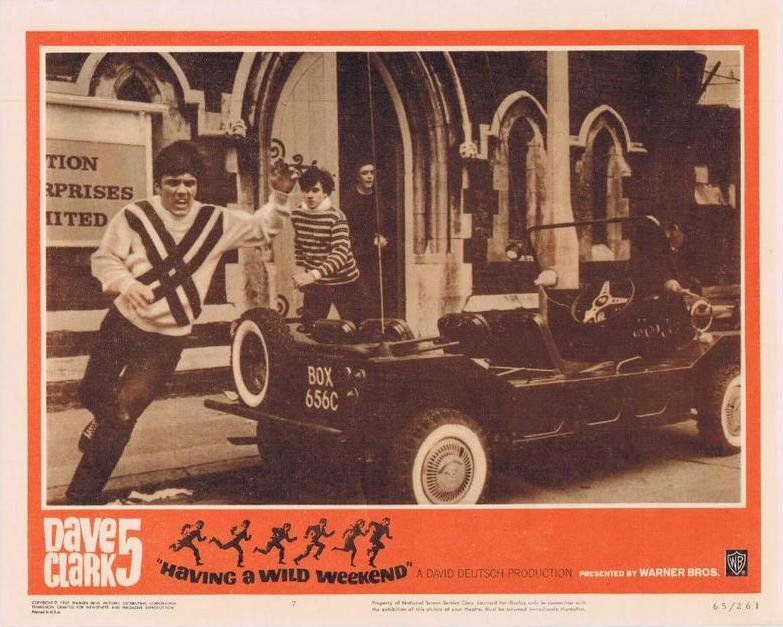
Having a Wild Weekend (UK, 1965) 91 min B&W DIR: John Boorman. SCR: Peter Nichols. PROD: David Deutsch, Basil Keys. MUSIC: The Dave Clark Five, John A. Coleman, Basil Kirchin. DOP: Manny Wynn. CAST: The Dave Clark Five (Dave Clark, Mike Smith, Lenny Davidson, Rick Huxley, Denis Payton), Barbara Ferris, Julian Holloway. (Warner Brothers)

Of all the films to appear in the wake of The Beatles’ A Hard Day’s Night, which would showcase other British Invasion musicians in irreverent youth pictures, Having a Wild Weekend may be the most apocalyptic. Catch Us If You Can (the film’s original UK release title) is also notable today as the first feature directed by John Boorman (Deliverance, The Emerald Forest, Point Blank). Although he now dismisses this picture, it’s still better than Excalibur, and in its own way, is an early effort to explore a favourite theme of culture clash, so prevalent in his work.
At first, the movie starts with a properly zany tone, as The Dave Clark Five comically goes through its daily routine, up to and including the merry chaos that occurs on a commercial shoot featuring the model named Dinah (Barbara Ferris). Then Dave Clark, as Steve, takes off with Dinah, with the boys in tow, to a remote location, populated by some spaced out beatniks, with “the establishment” still in hot pursuit. Scenes of the quintet committing Marx Brothers anarchy properly counter with the cold, metallic scenes of guys in suits and horned-rimmed glasses talking about their investment in the group. This act of rebellion then becomes a big publicity grab.
And of all the Hard Day’s Night spin-offs, this film may also be the least musical, as very few numbers are heard on the soundtrack, though the tunes featuring both its original and North American titles are memorable. The Dave Clark Five are hired less as a rock and roll showcase than as a representation of a youthful anti-authoritarian that the old guard despises, however keenly markets to the younger generation that it doesn’t understand. The movie begins to slouch towards the end, perhaps rightfully, as it begins with the zippy energy of youth, until the Five become desensitized by the authority of adulthood. This would also make a great double-bill with Blow-Up (1966), as the film of swinging mod life is full of cutaways to pop arts and modern deco that is at once seductive and dehumanizing.










